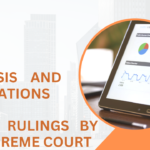In the ever-evolving world of cryptocurrencies, the concept of “verified investing” has emerged as a crucial aspect for investors seeking to navigate the complex and often volatile landscape of digital assets. As the crypto market continues to gain mainstream acceptance, the need for transparency, security, and regulatory compliance has become paramount.
Thank you for reading this post, don't forget to subscribe!This article delves into the intricacies of verified investing in crypto, providing a comprehensive overview of the practices, processes, and considerations involved.
Introduction to Verified Investing in Crypto
Verified investing in crypto refers to the process of conducting thorough due diligence and adhering to established regulatory frameworks when investing in digital assets. It involves verifying the legitimacy of crypto projects, assessing their potential risks and rewards, and ensuring compliance with applicable laws and regulations.
The rise of verified investing can be attributed to the increasing scrutiny and regulatory oversight surrounding the crypto industry. With numerous instances of fraud, scams, and market manipulation, investors and regulatory bodies alike have recognized the importance of implementing robust verification mechanisms to protect investors and promote market integrity.
Verified Investing in Crypto:
- Know Your Customer (KYC) and Anti-Money Laundering (AML) Compliance
- Due Diligence and Project Evaluation
- Regulatory Oversight and Compliance
- Investor Protection Measures
- Transparency and Accountability
The Benefits of Verified Investing in Crypto
- Enhanced Security and Risk Mitigation
- Increased Investor Confidence
- Regulatory Compliance and Legitimacy
- Access to Reputable and Vetted Projects
- Long-term Market Stability and Growth
KYC and AML Compliance in Crypto Investing
Know Your Customer (KYC) and Anti-Money Laundering (AML) processes are essential components of verified investing in crypto. These measures are designed to combat financial crimes, such as money laundering and terrorist financing, by establishing the identities of investors and the sources of their funds.
Crypto exchanges, wallets, and other service providers often require investors to undergo KYC procedures, which may involve submitting personal identification documents, proof of address, and other relevant information. AML measures involve monitoring transactions for suspicious activities and reporting any potential violations to relevant authorities.
By adhering to KYC and AML standards, verified investing in crypto helps maintain transparency and accountability, fostering a more secure and trustworthy environment for all market participants.
Due Diligence and Project Evaluation
Conducting thorough due diligence is a critical aspect of verified investing in crypto. Investors must carefully evaluate the legitimacy, viability, and potential risks associated with each crypto project they consider investing in.
The due diligence process typically involves:
- Analyzing the project’s whitepaper and roadmap
- Assessing the team’s credentials and experience
- Evaluating the project’s technology and underlying code
- Examining the project’s governance and decision-making processes
- Reviewing the project’s financials and tokonomas
- Investigating the project’s legal and regulatory compliance
By thoroughly vetting crypto projects, investors can make informed decisions and mitigate the risks associated with investing in unverified or potentially fraudulent ventures.
Regulatory Oversight and Compliance
As the crypto industry continues to evolve, regulatory bodies around the world have taken steps to introduce frameworks and guidelines to govern the sector. Verified investing in crypto involves adhering to these regulations and ensuring compliance with applicable laws and guidelines.
Regulatory oversight can take various forms, including:
- Registration and licensing requirements for crypto exchanges and service providers
- Anti-money laundering and counter-terrorism financing measures
- Consumer protection and investor safeguards
- Taxation and reporting obligations
- Initial Coin Offering (ICO) and Security Token Offering (STO) regulations
By complying with regulatory requirements, verified investing in crypto promotes transparency, accountability, and investor protection, ultimately contributing to the long-term sustainability and growth of the industry.
Investor Protection Measures
Verified investing in crypto also encompasses measures designed to safeguard the interests of investors. These measures aim to mitigate risks, prevent market manipulation, and ensure fair and ethical practices within the industry.
Investor protection measures may include:
- Segregation of client funds and assets
- Robust cybersecurity measures to protect against hacking and theft
- Insurance and compensation schemes for investor losses
- Enforcement of market conduct rules and prevention of insider trading
- Dispute resolution mechanisms and investor redress channels
By implementing these measures, verified investing in crypto helps build trust and confidence among investors, fostering a more stable and transparent market environment.
Transparency and Accountability
Transparency and accountability are fundamental principles of verified investing in crypto. Crypto projects and service providers must demonstrate a commitment to openness and provide investors with access to relevant information and data.
Elements of transparency and accountability in verified investing include:
- Regular disclosures and reporting of financial statements and project updates
- Public audits and third-party verifications
- Open-source code for blockchain projects
- Clear and accessible governance structures
- Established communication channels with the community and investors
By embracing transparency and accountability, verified investing in crypto promotes trust, facilitates informed decision-making, and fosters a more sustainable and reputable ecosystem.
Aspects of Verified Investing in Crypto
| Aspect | Description |
|---|---|
| KYC and AML Compliance | Establishing identities and monitoring for financial crimes |
| Due Diligence and Project Evaluation | Assessing legitimacy, viability, and risks of crypto projects |
| Regulatory Oversight and Compliance | Adhering to applicable laws and guidelines |
| Investor Protection Measures | Safeguarding investor interests and preventing market manipulation |
| Transparency and Accountability | Promoting openness, disclosures, and clear governance structures |
FAQs
What is the difference between verified and unverified investing in crypto?
Unverified investing in crypto refers to investing without proper due diligence, regulatory compliance, or investor protection measures. Verified investing, on the other hand, involves adhering to established frameworks and guidelines to mitigate risks and promote transparency.
Why is KYC and AML compliance important in verified investing?
KYC and AML compliance are crucial for combating financial crimes, such as money laundering and terrorist financing. They help establish the identities of investors and monitor transactions for suspicious activities, promoting a more secure and trustworthy crypto ecosystem.
How does due diligence help in verified investing?
Due diligence involves thoroughly evaluating the legitimacy, viability, and potential risks associated with a crypto project. It helps investors make informed decisions and mitigate the risks of investing in unverified or potentially fraudulent ventures.
What are the benefits of regulatory oversight in verified investing?
Regulatory oversight promotes transparency, accountability, and investor protection within the crypto industry. It helps establish guidelines for registration, licensing, consumer safeguards, and reporting obligations, contributing to the long-term sustainability and growth of the sector.
How do investor protection measures contribute to verified investing?
Investor protection measures, such as segregation of client funds, robust cybersecurity, insurance schemes, and dispute resolution mechanisms, help safeguard the interests of investors and prevent market manipulation. They build trust and confidence among investors, fostering a more stable and transparent market environment.
Why is transparency and accountability important in verified investing?
Transparency and accountability are fundamental principles of verified investing. They promote trust, facilitate informed decision-making, and foster a more sustainable and reputable ecosystem by providing investors with access to relevant information, disclosures, and clear governance structures.
Can individuals invest in crypto through verified channels?
Yes, individuals can invest in crypto through verified channels, such as regulated exchanges, wallets, and service providers that adhere to KYC, AML, and other compliance measures. However, it is essential to conduct thorough research and due diligence before investing.
How can investors identify verified crypto projects and service providers?
Investors can identify verified crypto projects and service providers by looking for those that are registered and licensed with relevant regulatory bodies, have undergone third-party audits and verifications, and demonstrate a commitment to transparency, accountability, and investor protection measures.
Closing Thoughts
Verified investing in crypto represents a paradigm shift in the digital asset industry, emphasizing the importance of regulatory compliance, investor protection, and transparency. By adhering to established frameworks and best practices, investors can navigate the crypto landscape with greater confidence, mitigating risks and promoting a more sustainable and trustworthy ecosystem.










